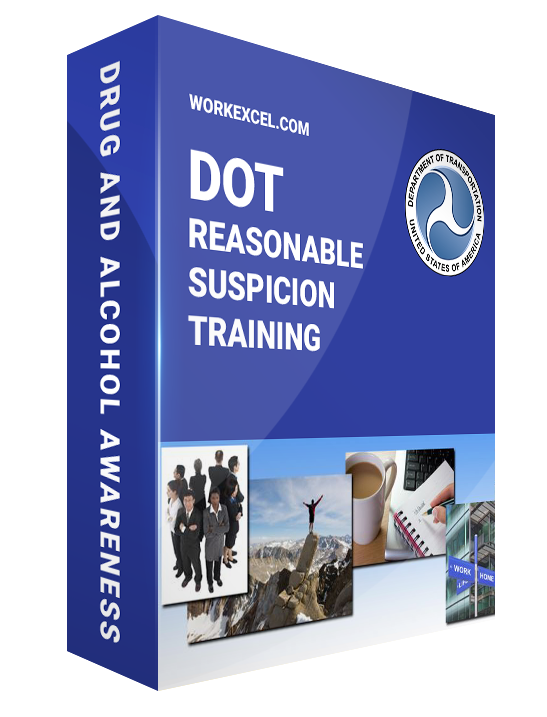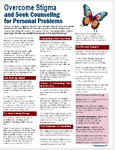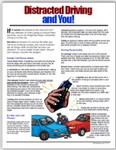Work Life Excel Corporate Health and..
Employee Newsletter in Spanish
Forever Employee Assistance Program
FrontLine Supervisor EAP Utilization..
Orientation of New Employees to the EAP
EAP Refresher Training for Supervisors..
EAP Supervisor Training (Comprehensive)..
EAP Supervisor Training: Essentials
Employee Newsletter - Editable..
25 Ways the EAP Can Help
EAP Refresher for Supervisors I
EAP Refresher for Supervisors II
EAP Refresher for Supervisors III
25 Ways the EAP Can Help
Alcohol and Drug Awareness Education..
Anger Management: Tips for Employees
Avoid Alcohol Abuse and Binge..
Avoiding Workplace Harassment Training..
Balancing Work & Family
Bullying in the Workplace Education..
Communication Tips for a Happier..
Danger of Using Bath Salts
Developing Resilience: Utlimate..
Employee Training Products..
Español: Orientation of New Employees..
Español: Preventing Workplace Violence
Five "More" Essential Stress..
Five Essential Stress..
Giving Couples Counseling a..
Helping to Prevent Suicide Kit
Heroin Education and Prevention..
How to Respond to a Disappointing..
Improving Your Assertiveness Skills
Marijuana Just Don't Use it
Orientation of New Employees..
Preventing Workplace Violence..
Resolving Coworker Conflicts..
Respect in the Workplace Training..
Supporting a Family or Friend in..
Teenagers Abusing Drugs: What Parents..
The Dangers of Using Methamphetamine
Thinking About Your Drinking..
Tips for Parenting Teens
Understanding & Conquering Codependency
Understanding and Treating..
Valuing Diversity at Work
What You Should Know about..
What You Should Know About..
What You Should Know About..
When You Experience a..
Your Role in Creating and..
"Oh So Easy!" 14 Vital Skills for..
"Oh So Easy!": Performance Evaluation:..
ARMY Drug-Free Workplace Course
Assertiveness for Supervisors:..
Certificate: 14 Vital Skills for..
De-escalation of Tension in Reducing..
EAP Refresher for Supervisors I
EAP Refresher for Supervisors II
All Health and Wellness Tip Sheets..
Drugs of Abuse Chart Health and..
E001 Workplace Wellness Program..
E002 Understanding Depression
E003 Managing Your Anger
E004 Dealing with Debt and..
E005 Giving Couples Counseling..
E006 When You Experience a..
E007 Tips for Parenting..
E008 Assertiveness Skills
E009 Resolving Coworker..
E010 Adult Attention/Hyperactivity..
E011 Preventing Violence in..
E013 Coping with the Blues
E014 Thinking About Psychotherapy
E015 Codependency: Caring..
E016 What to Do about a Negative..
E017 Sticking to Your Recovery..
E018 Caught in the Web: Internet..
E019 Workplace Injuries: Stress..
E020 When There Is Talk of..
E021 Living Life as a Shift..
E022 If You're a Victim of..
E023 Facing and Stopping Compulsive..
E024 Manage Job Stress Right..
E025 Making the Holidays..
E026 Dealing with Workplace..
E027 When Organizational Change..
E028 Preventing and Stopping..
E029 Handle Your Boss and Avoid..
E030 Military Deployment Stress
E031 Alcoholism Is a Family..
E032 Be a Star Performer at Work
E033 Living with a Mentally..
E034 Could Group Therapy Be for You?
E035 Facing a Bully at Work
E036 Dealing with Customer Service..
E037 The Art of Detachment
E038 Dealing with Difficult..
E039 Coworkers Facing Grief..
E040 Helping Someone Who Doesn't..
E041 Effective Workplace..
E042 How to Stay Energized at..
E043 Valuing Diversity at..
E044 "Functional Alcoholism"..
E045 It's Not Too Late. Making..
E046 Aging Gracefully
E047 The Art of Giving Feedback
E048 Becoming an Askable Parent
E049 Before You Quit Your Job
E050 Respecting Generational..
E051 Compulsive Gambling is a..
E052 Effective Time Management for..
E053 Coming Back Home
E054 - Coping with a Crisis
E055 Coping with Divorce
E056 When You've Been Disciplined..
E057 Managing Caregiver Stress!
E058 Taking Initiative On the Job
E059 Eldercare Across the Miles
E060 Preventing Identity Theft
E061 Boosting Employee Morale
E062 Discover the Leader in You!
E063 Letting Go of Your Control..
E064 Managing Stress by Eating..
E065 Addicted to Love?
E066 Quitting Tobacco: This Time..
E067 Beating the Recession
E068 Regaining the Ability to..
E069 Romance at Work
E070 Embrace Team Building
E071 Teens Using Drugs
E072 The Trouble with EMAIL
E073 Understanding Panic..
E074 Overcoming Workaholism
E075 End of Summer: Back to..
E076 Win with Completed Staff..
More Wellness Tip Sheets..
Join Free Products List
Wellness Tip Sheets (All)
Create Your Own Web Course
National EAP Blog
Request a Full Preview
Free Downloads
Online Catalog
GET FULL CATALOG
Full PDF Catalog (wait 30 seconds)
Condensed Catalog
About Us
Contact Us
Subscriber Article Suggest Hotline
HR and Manager Credit Courses
 Loading... Please wait...
Loading... Please wait...









